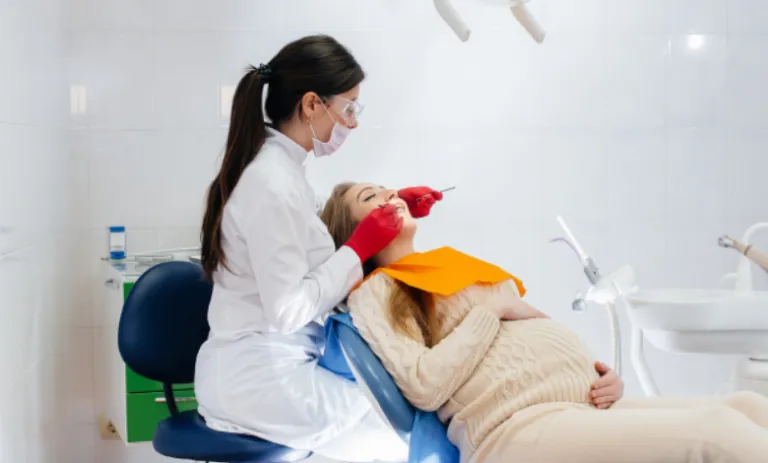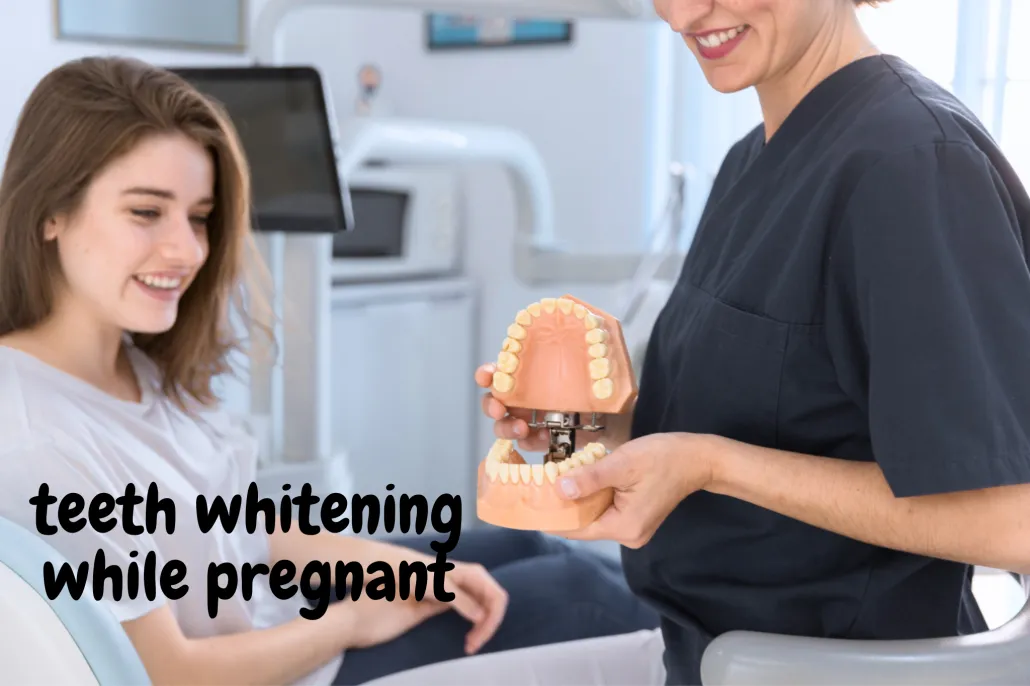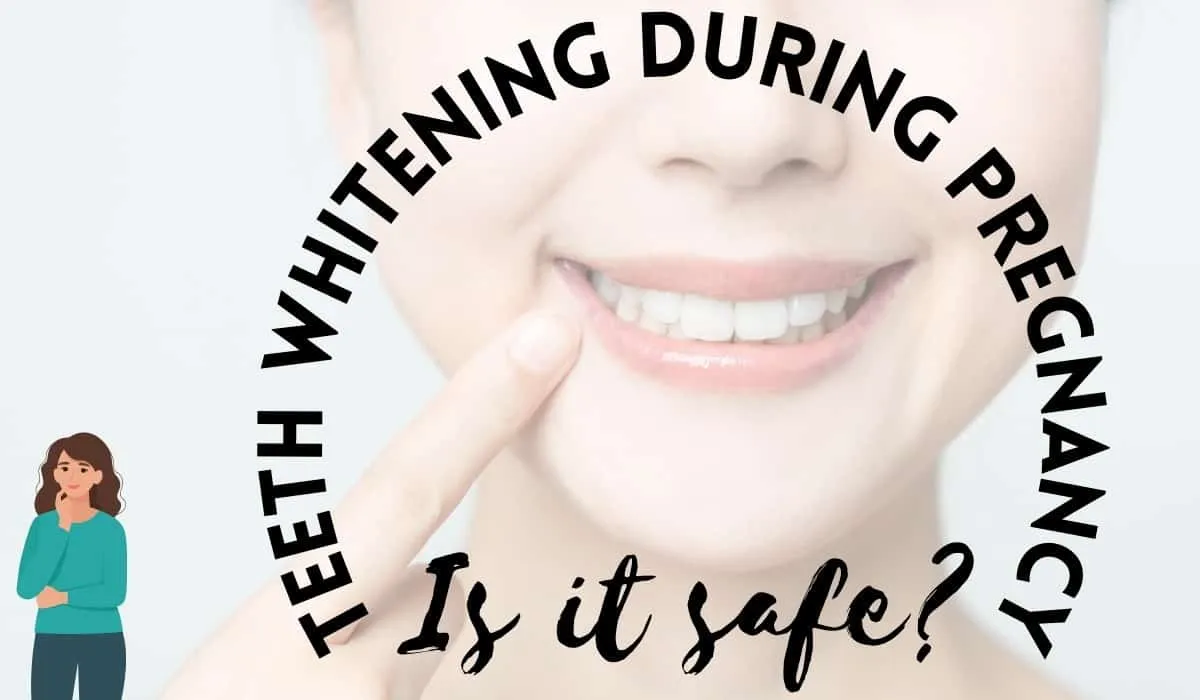Teeth Whitening and Pregnancy Risks Overview
Pregnancy brings about numerous changes in a woman’s body, and oral health is no exception. Hormonal fluctuations during pregnancy can increase the risk of gum disease and other dental issues. While many expectant mothers prioritize their health and the health of their unborn child, the desire for a bright, white smile can sometimes lead to questions about teeth whitening. However, it’s crucial to understand the potential risks associated with teeth whitening during pregnancy. This article explores the top 5 risks associated with teeth whitening while pregnant, offering a comprehensive guide to help you make informed decisions about your oral health during this special time. It’s important to prioritize the safety of both the mother and the developing baby.
Potential Risks of Teeth Whitening During Pregnancy
Teeth whitening, whether done professionally or at home, involves the use of bleaching agents, most commonly hydrogen peroxide or carbamide peroxide. These chemicals work by penetrating the enamel and oxidizing the stains that have accumulated on the teeth. While effective, these chemicals pose potential risks, especially during pregnancy. The developing baby is particularly vulnerable during this time, and any exposure to potentially harmful substances should be carefully considered. Understanding the potential risks is paramount to making informed decisions and ensuring a healthy pregnancy.
Sensitivity and Discomfort

Teeth whitening can often lead to increased tooth sensitivity. This sensitivity can range from mild discomfort to sharp, shooting pains, especially when consuming hot or cold foods and drinks. During pregnancy, many women experience heightened sensitivity due to hormonal changes, which can exacerbate the effects of teeth whitening. The increased sensitivity can make the teeth whitening process significantly uncomfortable, potentially discouraging women from completing the treatment. Consider your comfort level and be aware of the increased sensitivity risks before proceeding.
Gum Irritation and Inflammation
The chemicals used in teeth whitening can also irritate the gums, leading to inflammation and even chemical burns. Pregnant women are already more susceptible to gum inflammation, a condition known as pregnancy gingivitis, due to hormonal changes. The addition of teeth whitening chemicals can worsen this existing condition. This can lead to increased discomfort, bleeding, and potentially other complications. Seeking professional guidance is essential to avoid unnecessary risks and ensure the safety of both the mother and the baby. Always consult your dentist before proceeding with teeth whitening.
Ingestion of Chemicals
During teeth whitening procedures, there is a risk of accidentally ingesting the bleaching agents. This is particularly true with at-home whitening kits, which may not always fit perfectly, leading to chemical leakage. While the amount of chemicals ingested might be small, the potential impact on a developing fetus is a cause for concern. It is best to err on the side of caution and avoid any unnecessary exposure to potentially harmful substances during pregnancy. Always adhere to your dentist recommendations before and during pregnancy.
Uncertainty of Fetal Effects

Limited research exists on the direct effects of teeth whitening agents on a developing fetus. This lack of comprehensive research means that the potential risks are not fully understood. The potential for adverse effects on fetal development is a significant concern. Until more definitive studies are conducted, it’s generally recommended that pregnant women avoid teeth whitening treatments to minimize any potential risks to the baby. It is important to note that the lack of information does not mean there is no risk.
Allergic Reactions and Side Effects
Some individuals may experience allergic reactions to the chemicals used in teeth whitening. These reactions can manifest as rashes, swelling, or other systemic symptoms. During pregnancy, the body can be more sensitive, and the likelihood of experiencing an allergic reaction might be higher. The potential for any unexpected side effects or complications should be carefully considered. If any adverse reactions occur, seek immediate medical attention and inform your dentist or healthcare provider about the treatment.
Is Teeth Whitening Really Safe During Pregnancy?
The safety of teeth whitening during pregnancy is a subject of debate among dental professionals. While the procedures are generally considered safe for non-pregnant individuals, the situation changes during pregnancy. Due to the lack of conclusive evidence and potential risks to the developing fetus, many dentists advise against teeth whitening during pregnancy. The general consensus is that it is better to err on the side of caution and postpone teeth whitening until after the pregnancy is complete. Always consult with your dentist to get personalized advice.
What the Experts Say about Teeth Whitening

Dental experts often recommend against teeth whitening during pregnancy, emphasizing the importance of prioritizing the health of both the mother and the baby. They highlight that, while the chemicals used in teeth whitening might not pose a significant risk, the potential is still there. Considering the uncertainty and potential for harm, dentists usually advise waiting until after delivery to pursue teeth whitening. They stress the importance of focusing on maintaining good oral hygiene during pregnancy, including regular brushing, flossing, and professional dental check-ups.
American Dental Association (ADA) Guidelines
The American Dental Association (ADA) provides general guidelines for dental care during pregnancy. While the ADA doesn’t have specific guidelines against teeth whitening, they emphasize the importance of consulting with a dentist before undergoing any dental treatment during pregnancy. The ADA recommends that pregnant women inform their dentist of their condition and discuss any potential risks and benefits of various dental procedures. The emphasis is always on safety and the well-being of both the mother and the baby.
Alternative Dental Procedures During Pregnancy
While teeth whitening might be off the table during pregnancy, several alternative dental procedures can maintain and even improve your smile. These alternatives focus on promoting overall oral health and addressing any specific concerns that may arise during pregnancy. Focusing on these alternatives can ensure that your oral health remains a top priority while keeping the baby safe. Regular checkups are essential throughout pregnancy to proactively manage dental health.
Professional Teeth Cleaning

Regular professional teeth cleaning is one of the safest and most effective ways to maintain a healthy smile during pregnancy. Professional cleanings can remove plaque and tartar buildup, which can exacerbate gum inflammation. These cleanings can also help to prevent cavities. Schedule regular appointments with your dentist throughout your pregnancy to keep your teeth and gums healthy. A professional cleaning can make a significant difference in your overall oral health. Your dentist will also be able to identify any potential issues early on.
Home Care and Maintenance
Implementing a good oral hygiene routine at home is essential during pregnancy. This includes brushing twice a day with fluoride toothpaste and flossing daily. Consider using a soft-bristled toothbrush and being gentle on your gums. Avoid aggressive brushing, which can further irritate sensitive gums. Also, maintaining a balanced diet, including foods rich in calcium and other essential nutrients, will support both your oral health and your baby’s development. Practicing a good oral hygiene routine can help reduce your need for more aggressive treatments.
Tips for a Healthy Smile During Pregnancy
Maintaining a healthy smile during pregnancy involves a combination of professional care, good oral hygiene practices, and informed decision-making. Pregnancy can create significant challenges for your dental health, so it is crucial to take preventive steps to ensure your teeth and gums remain healthy throughout this period. Here are some additional steps you can take to keep your smile bright and healthy during your pregnancy.
Prioritize Oral Hygiene

Make sure to brush your teeth at least twice a day and floss daily. Use a fluoride toothpaste. Consider using a mouthwash that is specifically formulated to address pregnancy gingivitis if recommended by your dentist. Keep up with your dental care, as the health of your mouth can affect the rest of your body. Practicing good oral hygiene is a cornerstone of a healthy mouth. Regular flossing and brushing are essential for removing food particles and plaque, preventing cavities and gum disease. These practices are safe for both you and the baby.
Consult with Your Dentist
The best way to ensure you are making the right choices is to consult with your dentist throughout your pregnancy. Inform your dentist that you are pregnant at the beginning of your pregnancy so they can tailor their care accordingly. Regular check-ups, cleanings, and professional advice are essential components of your oral health strategy. Discuss any concerns you have about teeth whitening or any other dental procedures with your dentist. They can provide personalized recommendations. Your dentist can offer the best advice for your unique situation.
Choose Safe Products
When selecting oral hygiene products, choose those that are safe for use during pregnancy. Consult your dentist about safe toothpastes and mouthwashes. Check the ingredient lists for any ingredients you are concerned about, and avoid products that contain harsh chemicals. Opting for products specifically designed for sensitive teeth or gums can also be helpful. Choose gentle and effective products that won’t compromise your oral health. Discuss with your dentist which oral hygiene products are best for you and your baby.
The Best Time for Teeth Whitening

If teeth whitening is something you desire, it’s best to wait until after your pregnancy. Once you have delivered your baby and have stopped breastfeeding, you can safely pursue teeth whitening treatments. This will allow you to address any cosmetic concerns without risking the health of your baby. After you have completed your pregnancy, you can revisit the possibility of teeth whitening with your dentist.
Postpartum Teeth Whitening
After your baby is born, and if you are not breastfeeding, you can discuss teeth whitening options with your dentist. Professional teeth whitening is one option, and at-home whitening kits are another. Your dentist can recommend the most suitable approach for your needs and help you achieve a brighter smile safely. Postpartum is a great time to focus on your self-care and any dental procedures you may have postponed during your pregnancy. Make sure you are discussing with your dentist.
Consult Your Dentist for Personalized Advice
The best advice on teeth whitening and any dental treatment during pregnancy will always come from your dentist. They know your oral health history and can offer personalized recommendations based on your specific needs. Schedule an appointment with your dentist to discuss your concerns and goals. Your dentist will be able to provide accurate and up-to-date information, as well as help you make informed decisions. Your dentist will also be able to determine whether you are a good candidate for certain procedures.
